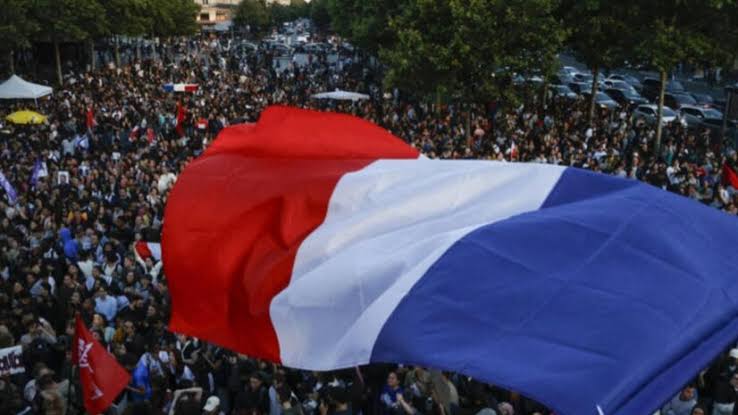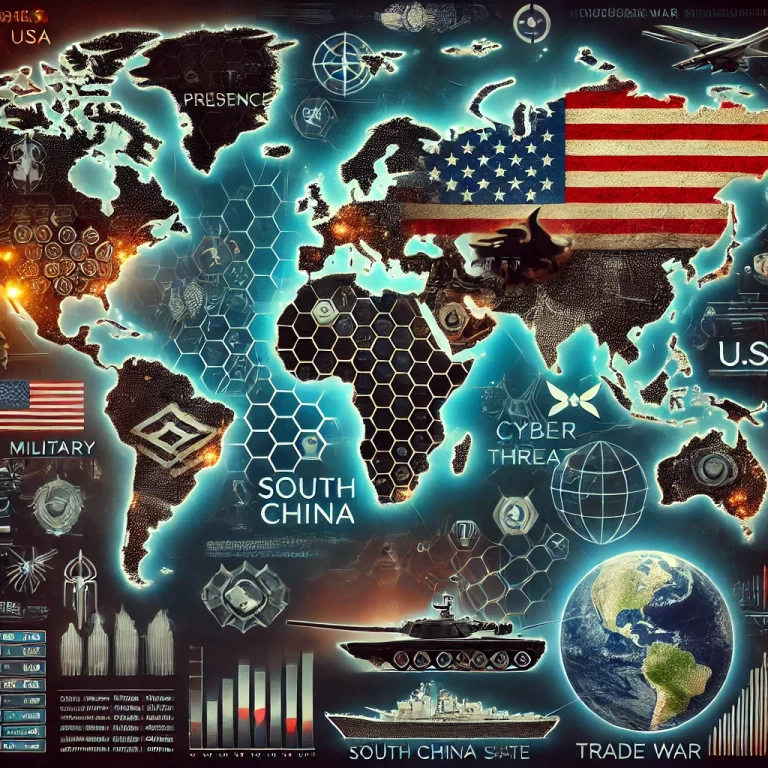
Political Thunder in France: The Astonishing Saga of Election Upheaval
While France is usually the director of political drama in Africa, back home it seems they've misplaced the script! Meanwhile, across the Mediterranean, Africans and the rest of the world are enjoying the show of French politics like it's their favourite soap opera.
France’s recent General Assembly elections have been a rollercoaster of surprises, turning the nation’s political landscape into a French sitcom. While France is usually the director of political drama in Africa, back home it seems they’ve misplaced the script! Meanwhile, across the Mediterranean, Africans and the rest of the world are enjoying the show of French politics like it’s their favourite soap opera.
Initially framed as a showdown between Marine Le Pen’s National Rally and Emmanuel Macron’s Ensemble, the electoral outcome took a surprising turn with the triumph of the Left-Wing coalition, the New Popular Front (NFP), securing 188 seats out of 577 in the National Assembly. This unexpected twist promises to redefine France’s political future dramatically.
Electoral Dynamics Unveiled
France’s electoral system spans 577 constituencies and operates through a two-round voting process. Following the initial round on 30th June where no candidate secured over 50%, a second round became necessary, revealing deep-seated political divisions.
Key Players and Their Performances
In the first round, Le Pen’s National Rally gained 105 seats, while Macron’s Ensemble unexpectedly secured 166 seats. The NFP initially captured 150 seats but surged in the second round to secure an additional 38 seats, establishing a prominent position in the Assembly while falling short of an absolute majority.
Implications of a Hung Parliament
The recent legislative elections in France resulted in a hung parliament, creating political uncertainty and complicating the formation of a stable government. This outcome extends to various aspects including investor confidence, the upcoming Paris Olympics, and France’s role as the euro zone’s second-largest economy. The formation of a minority government or coalition-building will be necessary to navigate legislative challenges ahead.
Voter Engagement and Societal Impact
French elections saw significant voter turnout, reflecting profound civic engagement and a strong desire among the electorate to influence their nation’s future decisively. Policies aimed at increasing voter participation, including registration modernisations and convenience voting, played a crucial role in this heightened engagement.
Rise of the National Rally and Challenges Ahead
Under Marine Le Pen’s leadership, the National Rally party has maintained a strong presence, appealing to voters amid economic challenges and societal uncertainties. Despite rebranding from the National Front in 2018 and shifting focus to nationalist, anti-immigration, and economic protectionism themes, the party faces challenges in broadening its appeal beyond its core base and managing potential leadership rivalries.
The Left’s Ascendancy and Coalition Realities
The NFP, a broad left-wing alliance including parties like France Unbowed and the Socialist Party, faces significant ideological differences requiring consensus-building for effective governance. Managing coalition dynamics will be crucial, potentially involving the Ensemble party to govern effectively without an absolute majority.
Economic and Policy Dimensions
The election outcomes will significantly influence economic policies, social agendas, and international relations in France. Major debates on taxation, welfare, environmental stewardship, and international relations will dominate parliamentary discourse, impacting EU laws and reversing some of Macron’s reforms.
International Observations and Reactions
Globally, the election results have sparked considerable interest and concern, influencing broader European political dynamics amidst evolving populist and centrist narratives. France’s role in the EU, its foreign policy direction, and economic stability are closely watched.
Pathways Forward: Coalition Building or Stalemate?
As France navigates this electoral shift, potential pathways for governance emerge amidst uncertainty. President Macron may pursue a moderate coalition encompassing left and centre-right factions to establish stability. Alternatively, a minority government led by the NFP presents challenges in securing legislative support, emphasising strategic coalition-building in a fragmented political landscape.
Conclusion: Navigating Uncertain Terrain
France faces a critical juncture in its political evolution, grappling with profound shifts in voter preferences and the complexities of coalition governance. The central question remains: can ideological differences be overcome to forge common goals? The recent electoral outcomes reflect a decisive call for change, demanding a unified vision for the nation’s future.
Public sentiment varies between optimism and scepticism. While some view the electoral mandate as a catalyst for progressive reform, others express concerns about navigating coalition dynamics in a fragmented political landscape. The implications extend beyond France, resonating throughout Europe and highlighting the enduring significance of democratic processes in global governance.
As France navigates this uncertain terrain, its ability to unite divergent interests and leverage the voter mandate will shape not only domestic stability but also its role in international affairs. The world watches closely as France confronts these challenges, each decision carrying implications that transcend national borders.
Aric Jabari is a Fellow at the Sixteenth Council



